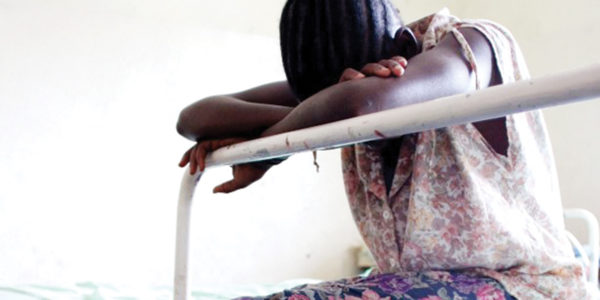
THIRTEEN-YEAR-OLD Danai Hove (not her real name) approaches a Mercedes parked before a line of bottle stores at Zengeza 2 shops in Chitungwiza.
BY SOPHIA MAPURANGA
The minor swiftly goes to the driver’s side and engages in a conversation, advertising her “wares”.
Before the driver can respond, several other skimpily dressed teenage girls with heavy make-up circle the car like vultures, trying to outdo each other in flaunting their “assets” like merchandise at a market stall.
Such has become the daily routine at several night spots in Chitungwiza, where young girls have taken to the streets as sex workers to eke out a living against the backdrop of deteriorating economic fortunes and the attendant social upheavals.
Most of the teenagers are ignorant of the law, which makes it a criminal offence for any person to have sexual intercourse with a minor and that the International Labour Organisation (ILO) has classified child prostitution as the worst form of labour.
At Zvido shopping centre in Unit P, the minors are so daring that they can even offer their services to men in the company of their wives.
Poverty has been cited as the major driver of teenage sex work.
- Chamisa under fire over US$120K donation
- Mavhunga puts DeMbare into Chibuku quarterfinals
- Pension funds bet on Cabora Bassa oilfields
- Councils defy govt fire tender directive
Keep Reading
“I need the money. I am not a prostitute by choice. My siblings look up to me,” one of the minors said.
“Besides, this is not capital intensive. Everything that I make is profit. I do not have to go around begging,” she said, revealing that on a good day she could make over $5.
Older women, who have been in the “oldest profession” longer, accused the minors — who are a hit with men — of pushing them out of “business”.
“They are so cheap! They charge men just a dollar for two rounds,” snapped Pretty Denhe (not her real name). One man, who declined to be named, said some of the teenage sex workers had huge bodies, so it was difficult to tell they were minors.
“Maybe it is the kind of foods they are eating and how they dress,” he said.
There were indications that some of the teenage prostitutes were aware that they were protected by the law, so they engaged in the sex trade deliberately knowing they could not be prosecuted.
“We cannot arrest them simply for loitering because they are protected by the law. The minors are taking advantage of this to openly solicit for prostitution,” a police officer, who spoke on condition of anonymity, said.
Early this year, the Constitutional Court outlawed the arrest of women found loitering for purposes of prostitution, arguing that in the absence of men, who would confirm being approached by the women for sex, the arrests were unconstitutional.
The order was granted after nine Harare women challenged their arrest and prosecution on charges of soliciting for prostitution in March last year, where they argued that their detention contravened Section 49(1)(b) of the Constitution that it was a denial of their fundamental right to the protection of the law as guaranteed by Section 56(1) of the same charter.
A youth counsellor at St Theresa Roman Catholic Church in Seke, Leonard Jamanda, urged communities to assume parental, roles especially for orphans and vulnerable children.
“We have community members, who take advantage of the minors, abusing them in exchange for material things,” Jamanda said .
Linda Mafundu, a social worker, said because of HIV and Aids, the family unit had been destroyed, leaving children vulnerable to all forms of social ills.
Latest statistics released by the National Aids Council (NAC) revealed that the country recorded a 7% increase in sexually transmitted illnesses (STIs), where 288 127 people sought treatment last year against 268 353 recorded the previous year.
Over 52 000 sex workers countrywide, 26 090 of whom were confirmed to have STIs and 10 922 of whom tested positive for HIV in a survey conducted between 2009 and 2015.
Stephen Nyaruwata, the acting director in the Ministry of Women’s Affairs Gender and Community Development, emphasised the importance of empowering girls as a strategy to ensure their protection and gender equality.
“Reaching girls in adolescence offers an opportunity to guide their development, self-discovery and identity in positive ways,” Nyaruwata said, adding that there was need to impose stiffer penalties for those found guilty of having sexual intercourse with minors.
Luceta Chifamba, a representative of the Young People’s Network, said teenagers faced a myriad of challenges including failure to access comprehensive sexual and reproductive health and rights information.











